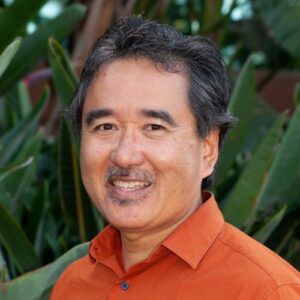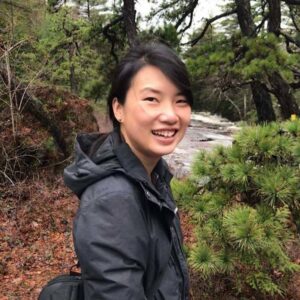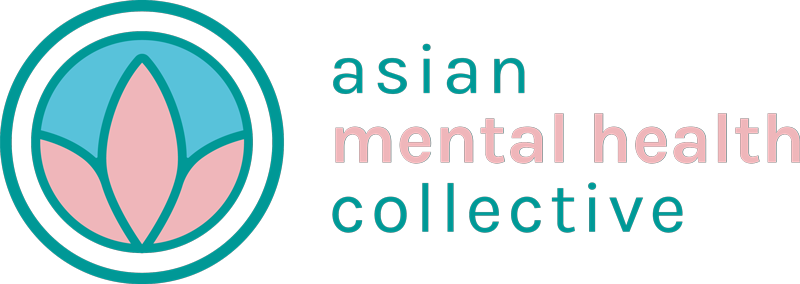
Amid the global coronavirus pandemic, the Asian Mental Health Collective discusses another epidemic – a longstanding one that has plagued Asian communities around the world – with freelance strategy consultant DJ Chuang.
Chuang, 54, calls shame an “epidemic” that has caused people to struggle unnecessarily, taking a toll on their mental and emotional health. His weapon against the rogue? A series of podcasts featuring honest, unfiltered conversations with those who have experienced shame, titled for its raison d’être – Erasing Shame.
Who, what, why Erasing Shame?
We wanted a platform where people who have experienced shame can discuss issues that are not normally talked about in their social circles and familial contexts. For someone who is struggling with mental health and has no friends to talk to, nor money to seek a psychologist, social media might be able to reach them.
We started with videos on Facebook Live and later got a grant from the Asian American Christian Counseling Service to convert them into a podcast. We are into our fourth season since launching in February 2018. Each season is co-hosted by myself and a mental health professional. We also often host guest speakers who have expertise in various topics or specific Asian subcultures.
We discuss a variety of issues, ranging from trauma that refugees experience, to living bi-culturally, to singleness. Things happen pretty spontaneously, which basically involves me reaching out to people and getting them to talk on the podcast.
What is your personal story with mental health and shame?
I was born in Taiwan, and moved to the US when I was 8. As the oldest son, I lived under the shadow of shame. My parents never gave me praise or told me they loved me, and I longed for it. It affected my emotional health.
After graduate school, I was diagnosed with bipolar disorder at age 34. Things really bottomed out for me emotionally when I was left without a job. I fell into deep, deep depression and wrestled with suicidal thoughts. I was steeped in these negative thoughts and couldn’t get rid of them. My healing journey took about a year, but this isn’t a condition that you can fully recover from. Just three years ago (2017), I had a psychotic episode and wound up in the psych ward for three days.
I think I had lived a less-than-optimal emotional life till then, but was never diagnosed earlier because I was too ashamed to get counselling.
Shame, I think, is something that has been passed on across various generations, in many Asian cultures. Many of us can identify with how, when you come home from a test score of 98, only to be questioned by your parents why you didn’t get a perfect score. Or, how they would often compare us with other kids – in my case, it was with my younger brothers, and I felt like I was never good enough.
Why is shame so entrenched in Asian cultures?
This may sound stereotypical, but Asian cultures are “shame based.” Shame has been weaponized by parents and elders in these communities, as a way of getting children to behave “properly.” It’s been passed down from one generation to another, never really talked about, but present in your everyday situations.
For example, many among us who are ethnic Chinese will identify with that time when we side-stepped the “protocols” and did not greet the elders as we were instructed by our parents, at family gatherings. I remember how I would often get a pep talk from my parents when I get home from such gatherings. It’s quite painful for me to go there… A lot of emotions were suppressed in the past.
Or when you scored less-than-perfect at a test, and parents’ respond by asking, “What’s wrong with you?” Words like that really point to, and damage, one’s identity.
And how does this relate to mental health?
When experiences and emotions of shame are entrenched over such long periods of time and one has no outlet to process it, it can be overwhelming for our mental state. Unfortunately, there is still a stigma among Asian communities with regard to seeking professional help for mental health.
Some see diagnosis as a shameful thing. And then, there are others like my parents who shunned all doctors in general – they never even went to the dentist. On the other end, there also aren’t many resources, in terms of psychologists or psychiatrists, who can offer culturally-appropriate counsel.
That is also why I hope Erasing Shame can provide a safe and accessible platform for these conversations. It is important to get started and not just wait until we get everything together, which is also part of our Asianness – the desire to be perfect.
What is your current relationship with your parents?
My mom is now more compassionate about my situation. She sees my conviction for mental health and also recognizes that my diagnosis is real – although it did take her three to four years to come around that understanding. Before that, she had tried to show me how I can have a “better attitude” toward life, to talk me out of it. I had to make things very concrete for her, and personally, I had to learn to understand that they wanted to help.
My dad passed away nine years ago and there were some sore points in our relationship that were, unfortunately, not reconciled before that.
Where do you see yourself in the journey to erase shame? Have you arrived?
I think this is an ongoing thing. Shame is a feeling, much like anger, happiness, or sadness. It is also not something you can totally erase. Part of the journey is realizing that you do not have to be paralyzed.
Shame is paralyzing, it causes people to want to hide their mistakes, etc. But the whole idea behind Erasing Shame is to realize that you don’t have to run away, but you also don’t have to be paralyzed. You want to get stronger from it, so that the next time you run into it, it’s less paralyzing.
What’s next for Erasing Shame, as in the podcast?
The baseline is to keep things going, continue the conversations, and we hope that others around the world will catch the vision for it. My ultimate hope is that eventually, these podcasts can be translated into different vernacular languages so that it will reach more people among the global Asian communities.
About the Author

KELLY NG
Kelly is a multimedia journalist based in Singapore. She’s passionate about crushing myths around mental health through stories and words. For her most recent project, she spent two years in New York working on a documentary about an Asian American kids’ theatre club. You can find more of her stories and writings in her portfolio.

